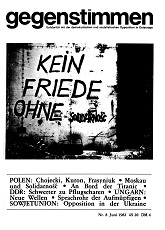
We kindly inform you that, as long as the subject affiliation of our 300.000+ articles is in progress, you might get unsufficient or no results on your third level or second level search. In this case, please broaden your search criteria.

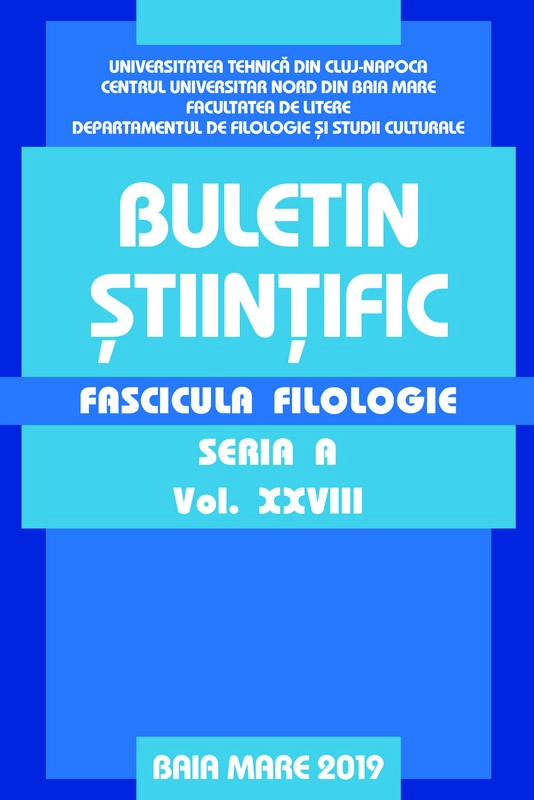
The scientific article is devoted to the discovery and analysis of the historical preconditions for the occurrence and formation of the Hungarian School of Sociology of Law. It explores the basic sociological and legaltheories and concepts of Hungarian scholars, their contribution to the historical development of the European Sociological jurisprudence.
More...
On the Discussion between the Czech Media Mainstream and its Leftist Alternative from the Perspective of the Left. This paper deals with the quality and the character of the interaction between actors in the Czech media sphere. The research fills the research gap by addressing the specific interaction of ideological opponents between journalists. The analysis begins with a quantitative finding that whereas the alternative media left publishes reactions to the mainstream media in its own media outlets, it does not publish them in the mainstream and the mainstream does not react to the leftist alternative. The factors that contribute to this one-sidedness according to the authors of the collected reactions include the lack of interest to publish opinion reactions on the side of the mainstream, the expectation of this lack on the side of the alternative, easier communication with the alternative leftist outlets, and a lack of space for reactions in the mainstream. The impact of such a disruption in one form of the public debate is according to the alternative left the building of opinion bubbles and a general threat to the democratic public discussion. Sociológia 2021, Vol. 53 (No. 6: 549-576)
More...
Why do People Vote for a Populist Radical Right? Geographical Analysis of Populist Radical Right Support in Czechia and Slovakia. Nowadays, the electoral success of the populist radical right is increasing across Europe. The objective of the study is to identify social factors which can potentially explain the geographical variability of the populist radical right in Czechia and Slovakia. The empirical analysis was based on multiple regression analysis. The results have shown that populist radical right parties in Czechia have larger support in districts with a lower voter turnout in the elections to the European parliament. And the share of the population with Slovak nationality is the most crucial factor for populist radical parties in Slovakia. Sociológia 2021, Vol. 53 (No. 6: 577-598)
More...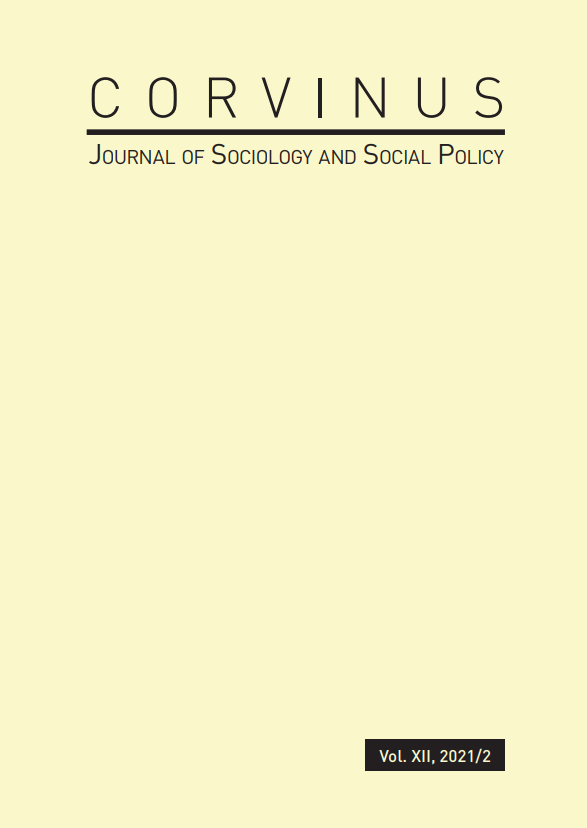
Social Policies and Emotions. A Look from the Global South, by Angélica De Sena and Adrian Scribano (Palgrave Macmillan, 2020)
More...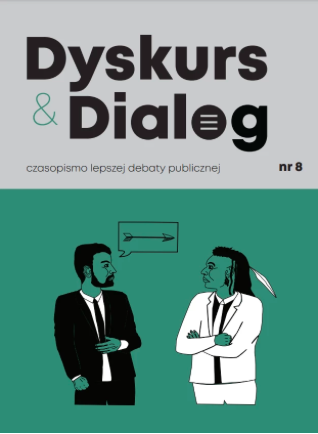
The article deals with the topic of the information bubble and various translations of the English term filter bubbles into Polish. It proposes a division into a filter bubble and a selection bubble, which together form an information bubble. In addition, it analyzes the advantages and disadvantages of individual bubbles. The research covered comments of Internet users on websites and on Facebook posts of Gazeta Wyborcza and wPolityce.pl to check the differences and similarities between the liberal and conserva- tive bubble, as well as the selection and filter bubble.
More...
"Wars of modern tribes" - an interview with Professor Michał Paweł Markowski
More...
This article examines the fate of colonial monuments in Africa during the post-colonial period, especially the monuments that the Portuguese erected in Bissau in West Africa. The discussion is preceded by a detailed analysis of the sources that describe the iconoclasm of colonial monuments in selected African cities and a thorough description of the field studies conducted by the authors in Guinea-Bissau in 2020. As new African states replaced former colonies, the removal of European monuments in their capitals became a widely discussed topic. Some expressly political colonial monuments were removed at the time of formal decolonization, others have fallen down over the years, and yet others still stand. What distinguishes Bissau from every other postcolonial capital in Africa is that, while all its colonial monuments were dismantled after 1973, most of the plinths on which they stood have remained. These empty plinths are a symbol of decolonization – sui generis monuments of dismantled monuments. They speak volumes about the nature of the transformations that have taken place in recent decades. The new way of commemorating people and events in the symbolic and political landscape of Bissau, viz. murals created on the grassroots initiatives of young Bissau-Guineans, is also examined.
More...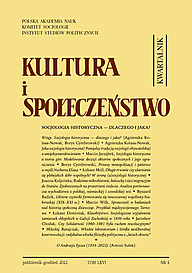
The paper aims to show the relationships between the sphere of culture and its setting. They can be outlined by reconstructing the sense attributed to cultural activities by the research respondents. The material constituting the basis for identifying how the rationality of cultural activities is grasped was provided by in-depth interviews with people involved in cultural policymaking and analysis of documents they referred to. Jürgen Habermas’ theory of communicative action, which draws on Max Weber’s take on the rationality of social action, provides inspiration for organising conceptualisations of the functionality of culture. This paper seeks to address the dual nature of the rationality of cultural activities, as instrumental and communicative. The potential sense of such a grasp of cultural activities is also indicated from a cultural policy perspective. An instrumentalist approach to culture, referring to expert discourse, can serve to resolve the crisis of legitimacy characteristic of cultural policy.
More...
The article is a critical approach to the problem of excluding voters from populist parties at the level of public discourse. This problem was analyzed in the context of the elitization of democracy. As a case study, the article analyzes the discussion on Law and Justice voters after 2015.On the basis of the conducted analysis, the content related to the stereotypical per- ception of PiS voters as unemployed, uneducated, living in small towns was noticed. As a result, there was a linguistic exclusion based on, for example, technocratic narratives.
More...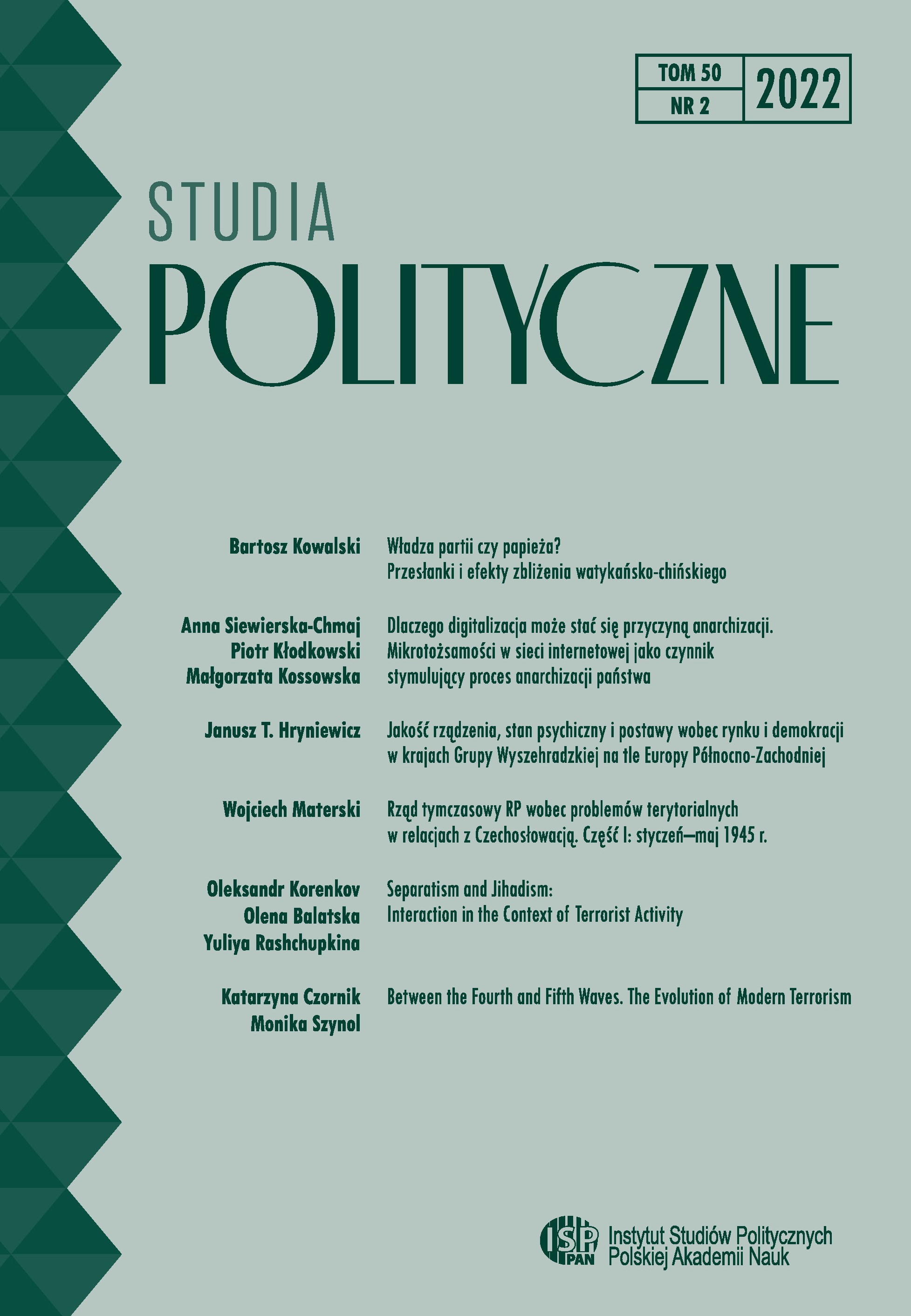
The article introduces general issues covered by the new concept of post-democracy. It concerns the radical criticism of modern democracy functioning in systemic forms such as liberal democracy, the democratic state of law and consensual democracy. This criticism is undertaken by a group of leading researchers including Giorgio Agamben, Alain Badiou, Étienne Balibar, Maurice Blanchot, Judith Butler, Ernesto Laclau, Claude Lefort, Jean--François Lyotard, Chantal Mouffe, Jean-Luc Nancy, Antonio Negri, Slavoj Žižek and Jacques Rancière. The article presents the views of Jacques Rancière, one of the main thinkers on post-democracy. He has been selected because he presents his critique of modern democracy insightfully, using language that refers to the tradition of European philosophy.Rancière believes that in contemporary democracy its basic subject – demos – becomes increasingly invisible and unrecognised, and that it is impossible to argue about the participation of entities in demos, a dispute that constitutes the essence of democracy and modern politics. He thinks that contemporary democracy obscures its true character and thus falsifies it, at the same time as invariably referring to its ethos. The reasoning presented in this article is an immanent analysis of Jacques Rancière’s texts, particularly La mesentante (1995) and also La haine de la democratie (2005) and Dix theses sur la politique (in: idem Aux bords du politique, 1998). The author suggests that these works contain reasons that should encourage in-depth reflection on contemporary democracy, particularly as referring to demos in the practice of political democracy is nowadays often considered a harmful mistake, giving rise to accusations of populism.
More...
This article reflects on contemporary images and myths of Europe as well as on those that accompanied European political discourse, or funded it. The choice of specific elements of the imaginarium is dictated by their rank and their political and social impact, as well as their links with the recent and current political and social reality (the Cold War period, the transformation years in Central and Eastern Europe, the ongoing migration crisis). The author considers the sources, transformations and activation of political myths and the specificity of political stories and structures, as well as the political and social functions that they perform. The significant motif of this article is related to the thought of Hans Blumenberg. The work on political myth is linked with the ‘socio-political’ need for significance and understanding of the processes, phenomena and events taking place in the social and political domain.
More...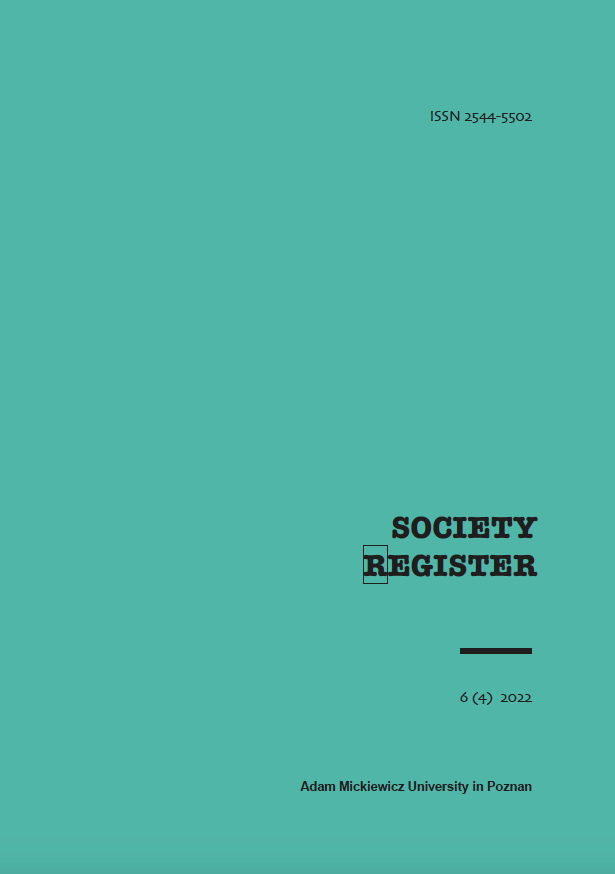
Emotions have re-emerged as a central topic of sociological interest, especially today, in a complex social and political historical moment. Even politics and events narration is not exempt from the emotional compartment. New technologies and social media (including social networks) have changed communication, relationship processes, and social interaction, moving from a vertical to a horizontal narrative. We live in a “platform society” (Van Dijck, 2018) as online sites and social networks specialized for discussion were also come up with the organization of decision-making processes and the activation of democratic practices in their different “onlife” manifestations. However, one thing should be emphasized: platforms reproduce the social structures in which individuals live between participation, freedom of expression and the elaboration of public political debate. The article aims to synthetically reconstruct the sociological discourse on emotions in political discourse and social narrative and communication through traditional and new media.
More...
The aim of this paper is to show the relationship between the besieged fortress syndrome, understood as a specific social engineering tool, and populism understood as a type of propaganda narrative. Particular attention has been paid here to the emotional aspect related to arousing the atmosphere of the siege. These are negative emotions, which in the siege syndrome are directed beyond the boundaries of the social system, and in the case of populism, negative emotions are directed towards the indicated intra-system entities. An important assumption is a thesis that negative emotions in both phenomena constitute only a starting point for arousing positive emotions towards the community subjected to socio-technical pressure, and above all, positive emotions that are supposed to create a strong bond between the political leader, the propaganda promoter of the threat, and their supporters or followers.
More...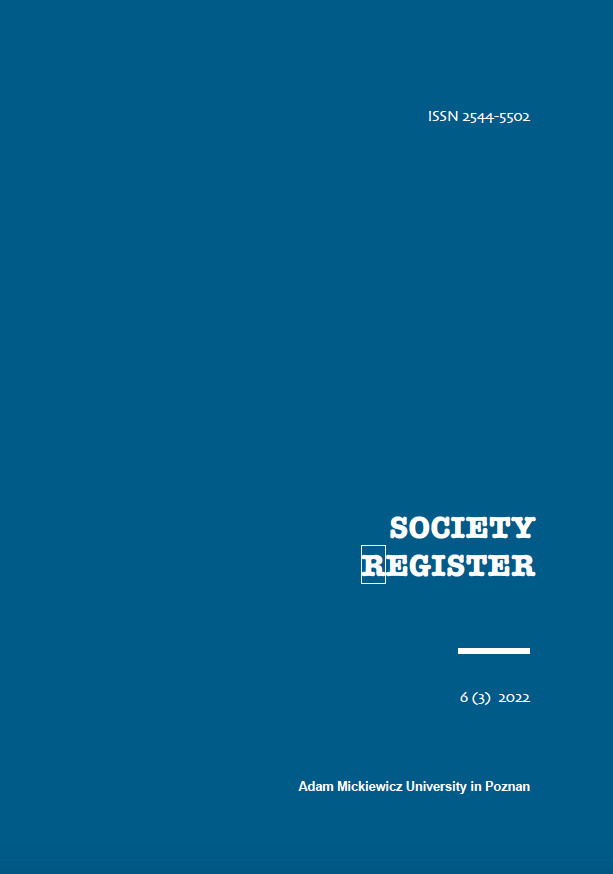
The following paper is about care1. It proposes a political vision to move towards a care-centred society that will allow the flourishing of everyone while keeping the planet inhabitable and thriving. For this utopian horizon that we name an ecology of care, we propose the creation of a Basic Income system that is constituted outside of and beyond the realm of the nation-state, as a means of changing humanity’s relationship to itself and transitioning from capitalism to a commons-based society. It argues for a disembedding of work—and the time allocated to it—from money, through a reformulation of the production of money in the form of an income distributed as an equal share to all those who are part of the planetary commons. Finally, it connects this Basic Income proposal with degrowth as a radical and necessary reformulation of society that considers its ecological roots and replaces the obsession with endless economic growth with the principle of taking care of people.
More...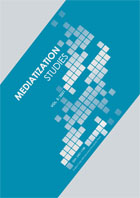
This paper focuses on the development of the narrative capacities of KOD social movement in Poland that were shaped in the mediatization process. Firstly, we assume that the analysis of a discursive character of movements’ political and media operations can expose how KOD constructs its narration and how the media deconstructs it. Secondly, since KOD operates in a highly media saturated environment, the study of how the movement appropriates communication technologies and uses them in everyday practices is essential. We conduct the research within the framework of critical discourse studies (CDS) where we combine interviews (IDIs) with the movement’s leaders and a content analysis of organized media outlets to collect textual data. The data enabled us to track how KOD social movement builds its narrative capacity in the process of mediatization, and in particular, how KOD’s narrative capacity is manifested in the movement’s discursive practices, and how media deconstructed KOD’s narrative capacity. The research showed that KOD representatives deploy the narrative frame of the significant role of the ICT and the media in the functioning of the movement. As the results indicate, discursive practices aimed at building narrative capacity were oriented towards adaptation to functioning in a mediatized communication environment. However, the results of our research showed that KOD could be characterized as a fragile movement and failed to build a stable narrative capacity.
More...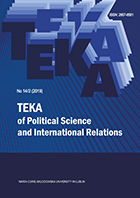
In the baltic states, both at the accession stage and now, high support for the European Union can be seen. the aim of the article is to analyze the process of joining the European Union by the three baltic states and to analyze the fifteen years in this organization. the subject of re- search will also be the social perception of European integration in these countries.
More...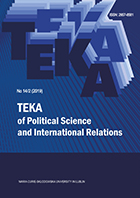
This article is a continuation of the considerations on the functioning of european works councils based on the results of own empirical research that was carried out in four euro- pean Union member states in the period 2020-2021. the aim of this part of the study is to present the respondents’ opinions on the weaknesses of these institutions of social dialogue and to indicate recommendations aimed at strengthening them, so that they can better implement the right to in- formation and consultation.
More...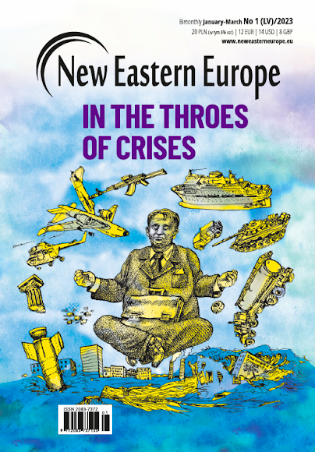
Like their predecessors in the 1920s and 1930s, today’s populists understand that by dividing society and delegitimising their adversaries, they can get away with blatant violations of the democratic rules. They aim to fuel discontent and toxic polarisation, which transform public debate into tribal wars.
More...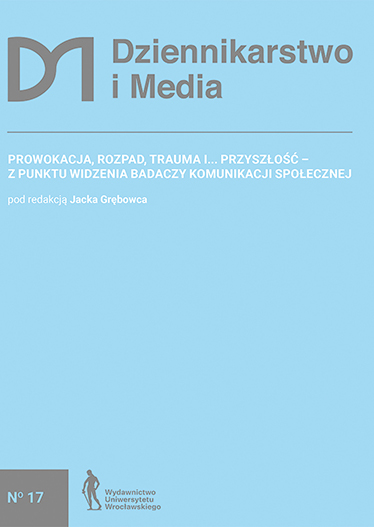
Undoubtedly, the use of websites offering access to video content has become one of the more common forms of consuming content posted on the Internet. This article takes up the topic of using overt and covert references to politics in the content posted on the YouTube profile of the Tygodnik NIE. As shown by the conducted research, these references differentiate recipients’ reactions to presented content. The analysis was based on the author’s own research. The research project was based on a quantitative approach, with the use of statistical methods and statistical inference in the calculations.
More...